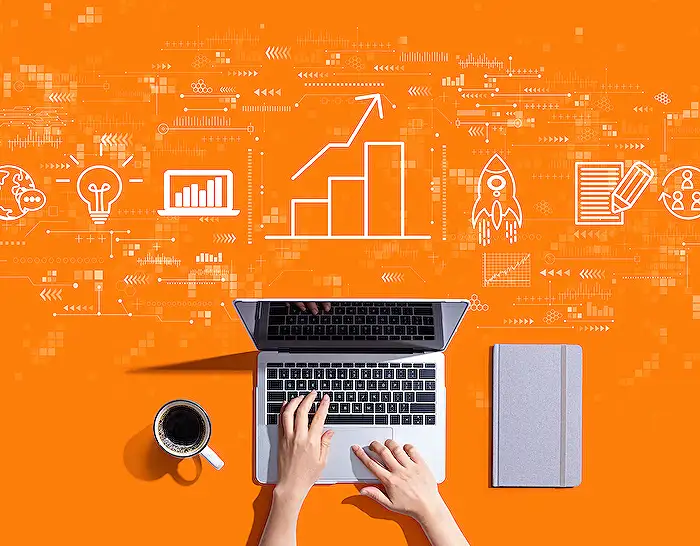
All about AI
Jan 6, 2025 2:00 PM
Quantum Leap: Decoding the Future of Computing for a New Era
by HubSite 365 about Peter Rising [MVP]
Microsoft MVP | Author | Speaker | YouTuber
Quantum Computing video explores superposition, entanglement, and more. Learn Microsoft 365, Azure, Purview, Security Copilot!
Key insights
- Quantum Computing: Unlike traditional computers that use bits, quantum computers utilize qubits, which can represent 0, 1, or any superposition of these states. This enables them to process numerous possibilities at once.
- Core Principles: Key principles include Superposition (qubits existing in multiple states), Entanglement (correlated qubits influencing each other), and Quantum Interference (amplifying correct solutions).
- Advantages Over Classical Computing: Quantum computing offers exponential speedups for tasks like factoring large numbers and simulating quantum systems. It enhances optimization and contributes to breakthroughs in material science.
- Challenges in Quantum Computing: Major challenges include high error rates due to decoherence, scalability issues, demanding resource requirements such as low temperatures, and the need for new programming paradigms.
- Future Potential: Quantum computing could revolutionize cryptography, artificial intelligence, global optimization in supply chains and energy grids, and healthcare through accelerated drug discovery.
- Microsoft's Role: Microsoft is advancing quantum technology via its Azure Quantum platform. It focuses on topological qubits for stability, provides a Quantum Development Kit with the Q# language, and promotes hybrid solutions combining classical and quantum computing.
Introduction to Quantum Computing
Quantum computing is an emerging field that promises to revolutionize the way we solve complex problems by leveraging the principles of quantum mechanics, a branch of physics that deals with phenomena at atomic and subatomic scales. Traditional computers process information in bits, which represent either a 0 or 1. Quantum computers, however, use qubits (quantum bits), which can represent 0, 1, or any quantum superposition of these states. This allows quantum computers to process a massive number of possibilities simultaneously.Core Principles of Quantum Mechanics in Computing
Quantum computing relies on several fundamental principles of quantum mechanics that distinguish it from classical computing.- Superposition: Qubits can exist in multiple states at once, enabling parallel computations. This principle significantly increases computational power, as it allows quantum computers to explore numerous possibilities simultaneously.
- Entanglement: Qubits can become correlated in ways that the state of one directly influences the state of another, regardless of distance. This mysterious connection enables faster and more efficient calculations.
- Quantum Interference: This principle is used to amplify correct solutions and cancel out incorrect ones during computations, thereby enhancing the accuracy of quantum algorithms.
Advantages Over Classical Computing
Quantum computing offers several advantages over classical computing, making it a promising technology for the future.- Exponential Speedups: Tasks that are impractical for classical computers, such as factoring large numbers or simulating quantum systems, become feasible with quantum computing. This could lead to breakthroughs in cryptography and material science.
- Enhanced Optimization: Quantum algorithms can solve optimization problems much faster, benefiting fields like logistics, finance, and artificial intelligence. This could lead to more efficient supply chains and improved financial models.
- Breakthroughs in Material Science: Quantum simulations can lead to the discovery of new materials and drugs by modeling atomic interactions, potentially revolutionizing healthcare and pharmaceuticals.
Challenges in Quantum Computing
Despite its potential, quantum computing faces several challenges that must be addressed for it to become widely adopted.- Error Rates: Quantum systems are susceptible to decoherence and noise, which lead to errors. Developing error correction techniques is crucial for reliable quantum computations.
- Scalability: Building and maintaining large, stable quantum systems is technically demanding. Researchers are working on scalable solutions to overcome this challenge.
- Resource Requirements: Quantum hardware often requires extreme conditions, such as near-absolute-zero temperatures, making it challenging to implement on a large scale.
- Algorithm Development: Quantum software development is still in its infancy, requiring new programming paradigms. Efforts are underway to develop quantum algorithms that can effectively leverage the power of quantum computing.
Future Potential of Quantum Computing
The future potential of quantum computing is vast, with applications in various industries.- Cryptography: Quantum computers could crack existing encryption methods, prompting the development of quantum-resistant cryptographic algorithms. This could have significant implications for data security.
- Artificial Intelligence: Quantum computing could enable faster machine learning model training and improved pattern recognition, leading to advancements in AI.
- Global Optimization: Applications in supply chains, energy grids, and climate modeling could benefit from the optimization capabilities of quantum computing.
- Healthcare: Accelerated drug discovery and personalized medicine through detailed molecular simulations could transform the healthcare industry.
Microsoft and Quantum Computing
Microsoft is deeply invested in quantum computing through its Azure Quantum platform. It provides access to quantum hardware and tools for quantum algorithm development, bridging the gap between researchers and practical applications. Microsoft’s approach emphasizes:- Topological Qubits: A theoretically more stable qubit design that could enhance the reliability of quantum computations.
- Quantum Development Kit (QDK): Includes Q# (a quantum programming language) to facilitate the development of quantum algorithms.
- Hybrid Solutions: Combining classical and quantum computing to leverage the strengths of both technologies.
Conclusion
Quantum computing is poised to transform industries by solving problems currently beyond the reach of classical computers. However, widespread adoption will require continued advancements in hardware, software, and error correction. While it won’t replace classical computing, quantum computing will serve as a powerful complement, opening doors to possibilities previously thought impossible. As researchers and companies like Microsoft continue to push the boundaries of this technology, the future of quantum computing looks promising.

Keywords
Future Computing Quantum Explained Quantum Computing 2025 Quantum Technology Trends Quantum Mechanics in Tech Next-Gen Computing Innovations Future of Technology 2025 Advanced Computing Systems
HubSite 365 Apps